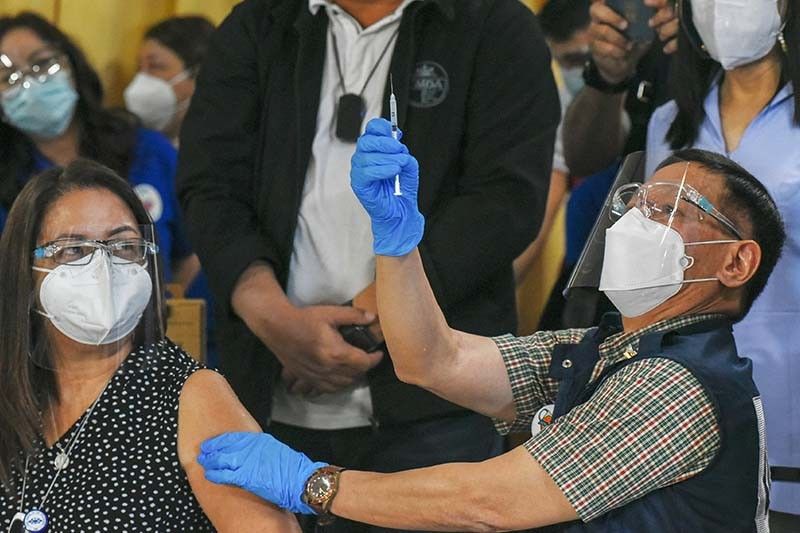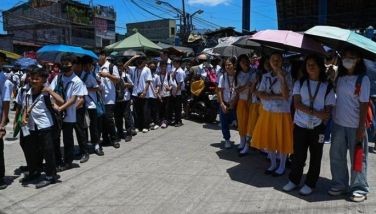Senators press gov’t: Where are the COVID-19 vaccines?

MANILA, Philippines — Given all the money borrowed just to secure them, a senator on Thursday asked the government: Where is the country's supply of the urgently needed COVID-19 vaccines?
Sen. Panfilo Lacson said this on Twitter as he noted that the country has a fund of P126.75 billion for the purchase of vaccines — all but P10 billion of which are loans from the World Bank, the Asian Development Bank and the Asian Infrastructure Investment Bank.
Despite this, only jabs donated by China and the COVAX facility have arrived in the country, more than two weeks into the government's already-delayed inoculation program.
WB/ADB/AIIB approved loans for Ph Covid vaccines:
— PING LACSON (@iampinglacson) March 17, 2021
April 20,2020 - US$100M
May 28, 2020 - US$500M
Dec 16, 2020 - US$600M
Mar 12, 2021 - US$500M
Mar, 2021 - US$400M
Mar, 2021 - US$300M
plus:
P10B - DOH Bayanihan budget
equals:
[email protected] per US$1
NASAAN KA BAKUNA?
So far, the government has secured two deals with manufacturers. A purchase agreement for one million doses of Sinovac's vaccine for P700 million and a supply deal for P30 million of Novavax's jabs.
The rest of the funds outlined by Lacson remained unused.
"Nasaan ang bakuna? (Where are the vaccines?)," Lacson pressed.
'Vaccinating healthcare workers to take 4 more months at current pace'
Meanwhile, Sen. Risa Hontiveros urged the government to set a "serious time frame" for the vaccination of healthcare workers, noting that only 12.7% of the 1.7 million health workers identified in the government's priority list have been vaccinated so far.
Less than half of the initial targeted 562,800 healthcare workers have even received their first dose, the senator noted.
"Currently, the [National Task Force Against COVID-19] is vaccinating 14,400 health workers a day...At this rate, it will take us around 4 months to finish vaccinating just 1.7 million people," she said.
Last week, Lacson warned that at the current pace of inoculation in the Philippines, it would take 11 years and eight months, or until 2033, for herd immunity to be achieved.
Additional shipments of 900,000 vaccines from AstraZeneca and 1.4 million jabs from Sinovac are expected to arrive between the last week of March and the first week of April. Health Secretary Francisco Duque III in an interview with "The Source" said the jabs "should already suffice to complete our vaccination of the most prioritized group...healthcare workers."
Why does this matter?
According to Hontiveros, the government's vaccine rollout "is paced without any urgency given the infection surge."
March has seen record-breaking spikes in infections as variants of coronavirus continue to be detected across the country. The government insists, however, that the rise in cases is due to poor compliance with health standards.
Supply from initial shipments is also running out. The next delivery will likely be 400,000 more Sinovac jabs donated by China which, per vaccine czar Carlito Galvez Jr., are expected to arrive on March 24— almost a full week from now.
Hontiveros recalled that the NTF previously said the country would be vaccinating the general public by April or May. As it stands, inoculating 1.7 million healthcare workers — only the first in the government's priority list — will be pushed back until at least early-April due to the staggered supply of vaccines.
Duque on Thursday said the government was looking to inoculate 450,000 people per day by next month but such promises are undermined by top officials' poor track record when it comes to meeting their own targets.
- Latest
- Trending
































